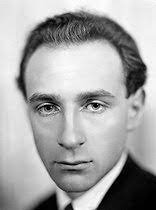
Pierre Morhange was a French intellectual, poet, and teacher. He was influenced by Marxist thought, by Spinoza, and by surrealism. In 1924, he founded the journal Philosophies with Henri Lefebvre and later led journals like Esprit, Revue marxiste, and Avant-Poste. Morhange also identified as a Jewish writer and was forced out of his philosophy teaching post by the Vichy regime. He spent the war years in hiding and working with the Resistance, deeply affected by the trauma of this period. Morhange ultimately found refuge in southwestern France, teaching philosophy at Tarbes before later returning to Paris.
While now somewhat forgotten as a poet, even in France, major poetic figures, including Paul Valéry and Paul Éluard, have championed his work, praising his unique poetry marked by both a pessimism and tenderness. According to the editors of a 2024 Revue Europe, dedicated in part to the poet and making the timely call the revive his legacy, Morhange’s poetic idiom is his completely his own: “His poetry resembles no other. At once harsh and bare, tender and wounded, it reaches us with the force of a physical blow. A sharp irony hides there, but also the powerful dream of a wounded soul who remains proud and dignified, barely revealing the secret of the infinite sweetness of its love.” Morhange was also a translator who worked from Russian and English and helped introduce poetry by American workers to a European audience.